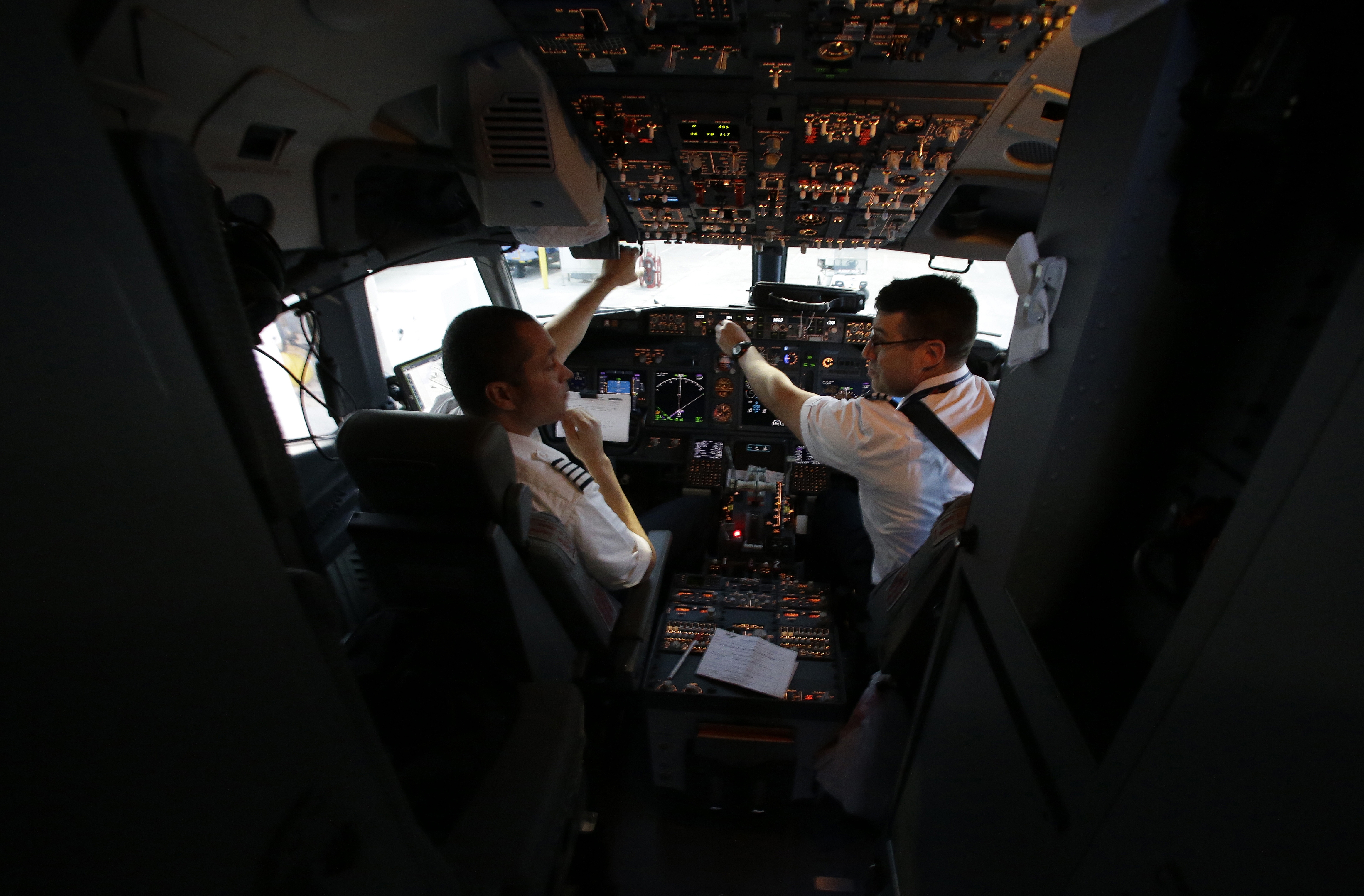
Sun Country Airlines pilots are on the picket line today, hoping to call attention to their ongoing dispute over wages at the company, MPR News reported this morning.
But it’s hard to pay attention to a wage dispute, when the union doesn’t want to tell us what the wages are. MPR News’ Martin Moylan said the union wouldn’t reveal the current wage scale, only that they haven’t had a raise in five years and times have never been better for the company.
Before we tell you, though, what do you think the person at the front of your plane should be making?
MPR’s Jon Collins reported in February that a 25-year airline captain told him that a base salary for a senior captain starts at about $107,000 and salary for a first-year pilot at just over $29,000.
That’s fairly consistent with what a website that tracks airline pilot pay reports. Airline Pilot Central says the base pay for a first-year captain is $31 an hour, with a minimum guarantee of 70 hours a month. That’s about $25,000 a year.
There are other perks, including per diems and matching retirement contributions.
A retired airline friend reports the Sun Country pilots make about 58% of what a Delta pilot flying similar aircraft is paid.
The first year captain at Southwest — an airline that mostly flies 737s too — makes $191 an hour with a monthly guarantee of 78 hours. That’s a fair chunk of change.
But Southwest requires a minimum of 2500 hours of flight time to be hired. Airline Pilot Central doesn’t list a minimum requirement for Sun Country, although FAA regulations require 1,500 hours. That number was increased after the Colgan crash in Buffalo.
It’s this requirement, by the way, that is said by some experts to be the cause of the coming pilot shortage.
To be an airline pilot (assuming you’re not coming from the military) requires a vow of poverty until you can jump from airline to airline and make some decent money.
Smaller airlines know that the person who wants to be a pilot has no choice but to accumulate the minimum number of hours to be one. So they pay poor wages, believing it’s a fair exchange for building flight time in simulators, for example.
In one case in the Upper Midwest, we’re aware of one small airline that doesn’t pay pilots during their training period, and then charges them $7,500 if they leave before a certain date.
Why would someone want to leave? Because they pay $16 an hour, guaranteeing only 75 hours, or $14,000 a year. And the pilots are locked into a seniority system that makes getting a better paying job difficult.
“Simply berating the regional airline industry to pay more will not work,” Aviation Week reported earlier this year.
Its salaries are locked by two main drivers: cost-fixed contracts that the regionals hold with mainline carriers, and pilots’ collective bargaining agreements. Consolidation in the airline industry has meant regionals have less leverage in increasing contract amounts. “The airline has little control to raise pay unilaterally because they won’t get the contract,” explained Roger Cohen, then-president of the Regional Airline Association.
And the big airlines are giving more of their routes to regional carriers, and planes piloted by people making less money.
If you can hang in and accept working in an economic system like this, you can probably lead a decent life. But fewer people want to, some evidence suggests.
Enrollment at universities with aviation programs — such as the University of North Dakota — is down significantly, according to Aviation Week.
